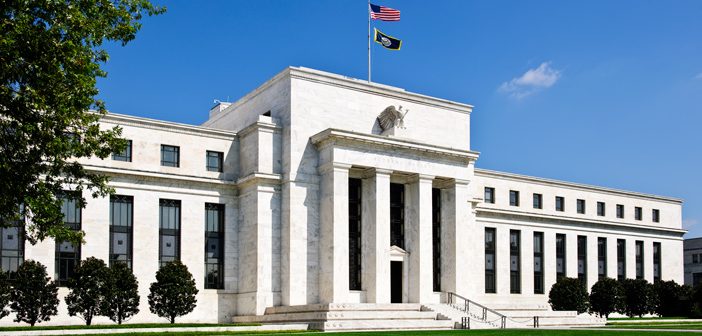The Federal Open Market Committee (FOMC) holds its next meeting on March 19-20. And with it comes serious questions that impact your financial well-being. Will the Fed raise interest rates? Will they drop interest rates? Will they hold rates where they are today?
As far as predicting what will happen at this month’s meeting, when asked about a rate cut, at January’s meeting, Chairman of the Federal Reserve (the Fed) Jerome Powell said, “Based on the meeting today, I would tell you that I don’t think it’s likely that the committee will reach a level of confidence by the time of the March meeting to identify March is the time to do that,” he said. “But that’s to be seen.”
So, the question remains: what will the FOMC announce this month? You could play January’s press conference in search of clues. Spend hours looking around the internet for predictions from financial experts and influencers, visit a fortune teller, or go with your gut feeling. Better yet, be proactive by securing a high yield with our Flex-Term Certificate.
What to do if you think rates will rise over time
Let’s say you’re betting the Fed will raise interest rates. You don’t want to miss out, but you feel uneasy not having access to your money over the long term. Now’s the time to lock in a high yield for a short period. Our Flex-Term Certificate delivers a whopping 5.25% APY* for 3, 6, 9, 12, and 18 month terms. With the inflation rate just over 3.00%, this is a smart way to cover rising prices and earn a nice yield.
What to do if you think rates will drop
On the flip side, if you believe rates will drop. Open a Flex-Term Certificate of 24, 36, 48, or 60 months to earn 4.25% APY. Think of it this way, the Fed meets eight times a year. That’s 40 opportunities over 60 months where they could drop rates. But if you lock in a 60-month Flex-Term Certificate now, you could secure a nice return month after month for years. Perhaps you deserve a seat on the board of the Federal Reserve.
Easy to open with safety built in
Here are two more reasons to consider opening a Flex-Term Certificate before the Fed’s meeting. First, the minimum deposit to open this account is just $1,000, and there’s no maximum. Second, no matter which term length you choose, your funds are insured up to $250,000 by the National Credit Union Administration. They’re the FDIC for credit unions.
Final thoughts
Whether you think we’re headed toward a recession or a soft landing, there’s no denying the upcoming Fed meeting will impact interest rates and the economy. The question is, what will you do? Sit back, hoping for the best for your financial situation, or open a Flex-Term Certificate that delivers a nice yield no matter what the Fed does? Visit our Certificate Earnings Calculator to learn how much you can earn by opening a Flex-Term Certificate today.
*Limited Time Offer Flex-Term Share Certificate available on new Certificates. The following terms are available as follows: 1) 3 months, 6 months, 9 months, 12 months, and 18 months. This is a promotional yield of 5.25% APY; Annual Percentage Yield (APY) is calculated on a 5.13% base rate; 2) 24 months, 36 months, 48 months, and 60 months, this is a promotional yield of 4.25% APY; Annual Percentage Yield (APY) is calculated on a 4.17% base rate. Yields are subject to change without notice. “Flex-Term” Bonus Dividend may not be combined with any other dividend increase/bonus, i.e., “Direct Deposit Bonus” and “Jumbo Certificate” increased rates. $1,000.00 minimum balance, regular Share Certificate requirement on a 365-day basis compounding monthly or at account closure. IRA Share Certificates with a 12-month term or greater qualify for this promotion. No additional deposits accepted (other than dividends) during certificate term. There is a substantial penalty for early withdrawal of Certificate funds. Fees and other conditions may reduce earnings. The Flex-Term promotional Certificate will automatically roll over to the same term as the Flex-Term period selected at the time of opening at the available rates of Certificates at maturity. Federal regulations require dividends to be paid from available earnings; dividends are contingent upon this regulation. Refer to our TISA Disclosure for terms and conditions.
*APY = Annual Percentage Yield. Yields are subject to change at any time. Early withdrawal penalty and fees could reduce the earnings on an account.





